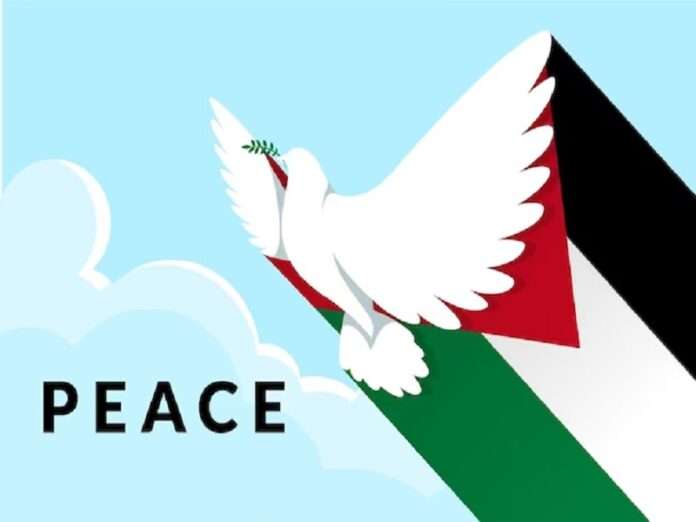Hamas leader Ismail Haniyeh said in a recent interview that “We want Egypt, Qatar, Turkey, Russia, the UN to be guarantors (for Gaza’s security). Of course, the United States will also [be able to join] in the future. However, Israel constantly opposes this. Demand for guarantor countries – we always put it first.” As he himself said, Israel is unlikely to agree to this, especially since it’s not militarily losing unlike what many members of the Alt-Media Community have claimed over the past six months.
After all, its collective punishment of the Palestinians that many believe amounts to genocide wouldn’t have been possible if Hamas was winning, unless of course that group cynically wanted Israel to genocide them in order to turn global opinion against the self-professed Jewish State. That’s too conspiratorial to be credible though but it’s what adherents of the belief that Israel is militarily losing tacitly imply whether they realize it or not.
Nevertheless, what’s most interesting about Haniyeh’s proposal is that it appears to be inspired by the spring 2022 draft treaty between Russia and Ukraine, which also concerned “security guarantees”. Russian Foreign Minister Sergey Lavrov just revealed during an interview with several of his country’s media outlets last week that the document involved Article 5-like “security guarantees” for Ukraine. Here are his exact words as reported by the official Russian Foreign Ministry website:
“As for the negotiations – we haven’t mentioned this yet, but I hope I won’t be criticised for it – what guarantees did that Istanbul document include? We were ready to provide extremely serious guarantees, as the Ukrainian delegation wanted. Is Article 5 of the North Atlantic Treaty serious enough? We did not reproduce it verbatim, but agreed upon a formula that was close. What I am saying is, those were very serious security guarantees.”
What’s most surprising about these and the other generous terms that were previously reported by the Wall Street Journal is that they were agreed to by Russia in spite of it militarily winning at the time of their negotiations and therefore in a position to force more punitive demands. Israel isn’t Russia though and it has no track record of similar such “goodwill gestures”, thus making it impossible to imagine that it would agree to real “security guarantees” for Gaza when it’s militarily winning.
Even on the off chance that Israel agrees to recognize Palestinian independence as part of the deal that the US is reportedly brokering between it and the Saudis, Israel would remain averse to the scenario of real “security guarantees” for Gaza in case militants there spark another war and drag others in. Should that happen, however, then it can’t be taken for granted that they’d heed Gaza’s call for help since none lifted a finger to stop Israel’s collective punishment of the Palestinians due to its nuclear-armed status.
Neighboring Egypt, whose leader presents his country as the voice of the Arab World, continues to keep the border closed to fleeing women and children and therefore perpetuated these crimes. The only two countries that have done anything tangible in support of Palestine’s political cause are Iran and Russia, the first of which unprecedentedly retaliated against Israel after the bombing of its consulate in Damascus while the second proposed sanctioning Israel for refusing to implement UNSC Resolution 2728.
A Duma member described Iran’s retaliation as a “beautiful theatrical performance”, however, while Russia’s proposed sanctions are a political fantasy due to American defense of Israel at the UNSC. That said, these two’s mostly symbolic gestures are still more than anyone else has done thus far and likely will ever do since no one wants to risk a nuclear war with Israel over Gaza. For this reason, anyone that gives real “security guarantees” of any significance to Gaza is bluffing, and they risk being exposed.
At the same time, insincere commitments to Gaza could provide its representatives – whoever they might be by then in that scenario – with the “face-saving” pretext for making major concessions to Israel. All parties would know that nothing will come out of those promises, even if they resemble Article 5-like ones along the lines of what Ukraine was offered in a totally different context, but it might be what’s needed if a deal is reached behind the scenes at some later point for Israel to finally recognize Palestine.






